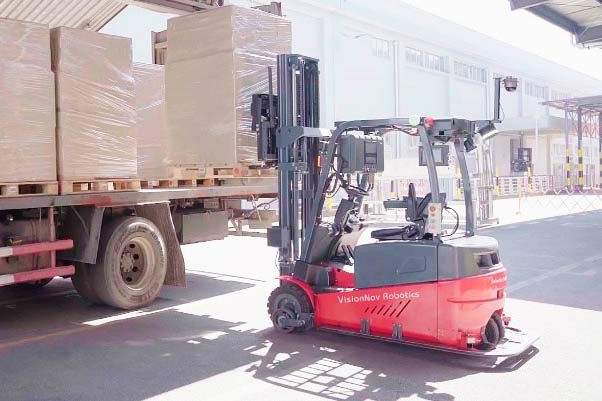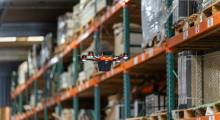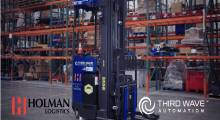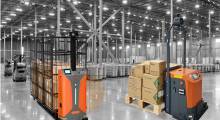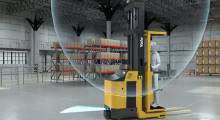VisionNav Robotics today announced Series C+ funding of more than $80 million (U.S.). Shenzhen, China-based VisionNav claimed the financing makes it “the company with the greatest number of funding rounds and [is] the single biggest funding in the field of driverless industrial vehicles globally.”
Intralogistics enterprises have struggled with low efficiency, labor recruitment difficulties, and a lack of digitalization, said VisionNav. It added that autonomous lift trucks and other industrial vehicles offer a feasible solution, as well as a large potential market.
The global volume of forklift shipments reached 1.58 million units in 2020 and 2.34 million units in 2021, an increase of 42.93% over last year, according to World Industrial Trucks Statistics (WITS) data.
The global electrification ratio of lift trucks had reached 63% by 2020, according to WITS, which said it expected that 20% will be autonomous in 2028, with a market size of nearly $100 billion.
Fortune Business Insights predicted that the compound annual growth rate (CAGR) for global forklift shipments at about 4.3% from 2021 to 2028.
VisionNav applies tech, market lessons
Founded in 2016, VisionNav Robotics said it applies artificial intelligence, environmental perception, deep learning, servo control, and other core technologies to vehicles for factories and warehouses.
The company has developed nine series of driverless industrial vehicles and robot control systems.
VisionNav said its development of robotic sensing, control, positioning, and scheduling has enabled it to cover all aspects of intralogistics. It said it has made breakthroughs such as 9.4-m (30.8 ft.) high rack storage, 2-m (6.2 ft.) narrow-aisle access, unmanned loading and unloading, and multi-layer mobile material frame stacking.
The company said it has learned from multiple complex application scenarios and that it follows established industry feasibility standards and has formed “absolute technical barriers.”
In terms of its business model, VisionNav said it has cooperated closely with with key players throughout the business chain, including leading international suppliers and end customers. It also claimed that it has a verified cost advantage as a market differentiator.
Amid the ongoing COVID-19 pandemic and uncertain international relations, the logistics and robotics industries are weathering a year of challenges, said Li Luyang, CEO of VisionNav. They are moving toward large-scale and standardized deliveries, he said.
VisionNav said it has build an ecosystem around unmanned intralogistics, improved supply chain integration, and expanded its operational capacity to be competitive.
According to Li, VisionNav's sales grew tenfold growth between 2019 and 2021. Compared with 2021, the company said it expects its sales to grow by 300% in 2022, with average order amount increasing by 350% and the amount of customer re-purchase orders tripling. With entry into new markets and large-scale deployments, VisionNav forecast that its business scale could grow fivefold this year.
Funding to enable scaling to more sectors
Since its last round of funding, VisionNav Robotics has set up marketing centers in more than 30 countries and regions. The company has successfully delivered more than 350 projects, including more than 1,500 autonomous forklifts and unmanned tractors.
The projects included auto parts, tires, petrochemicals, tobacco, food, pharmaceuticals, 3C (computer, communication, and consumer) electronics manufacturing, e-commerce, third-party logistics (3PLs), textiles, printing, and papermaking, among many others, it said. Over 70% are projects with complex scenarios and rigid demands, said VisionNav.
In addition, the company said it has established partnerships with more than 50 Fortune 500 businesses.
Meituan, a leading e-commerce services platform in China, led VisionNav's Series C+ round. VisionNav said it will use this round of funding on technology research and new product development. It will also optimize product performance with a focus on stability and standardization.
VisionNav said it also plans to promote large-scale implementation and localized delivery for global customers.
Article topics
Email Sign Up



